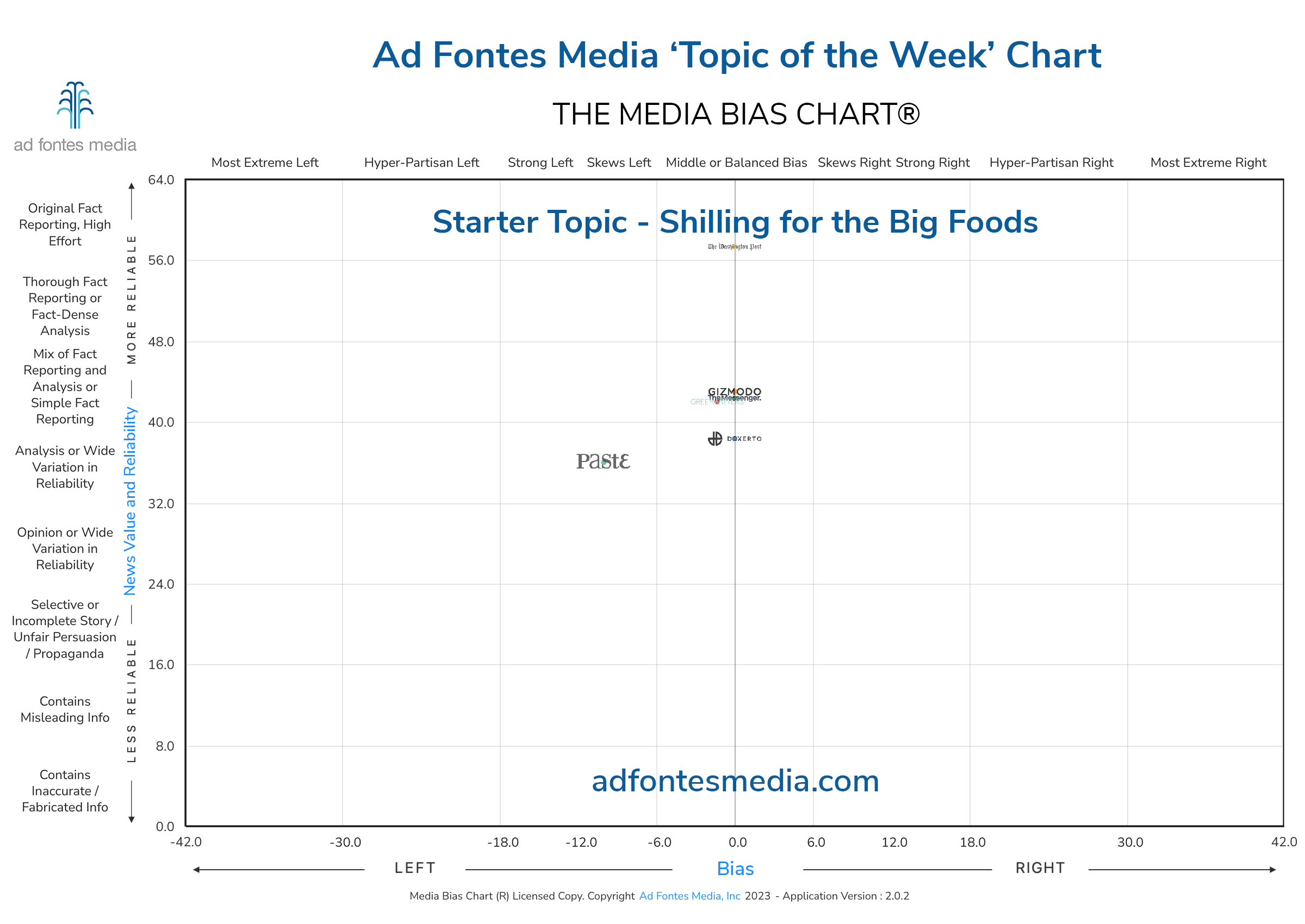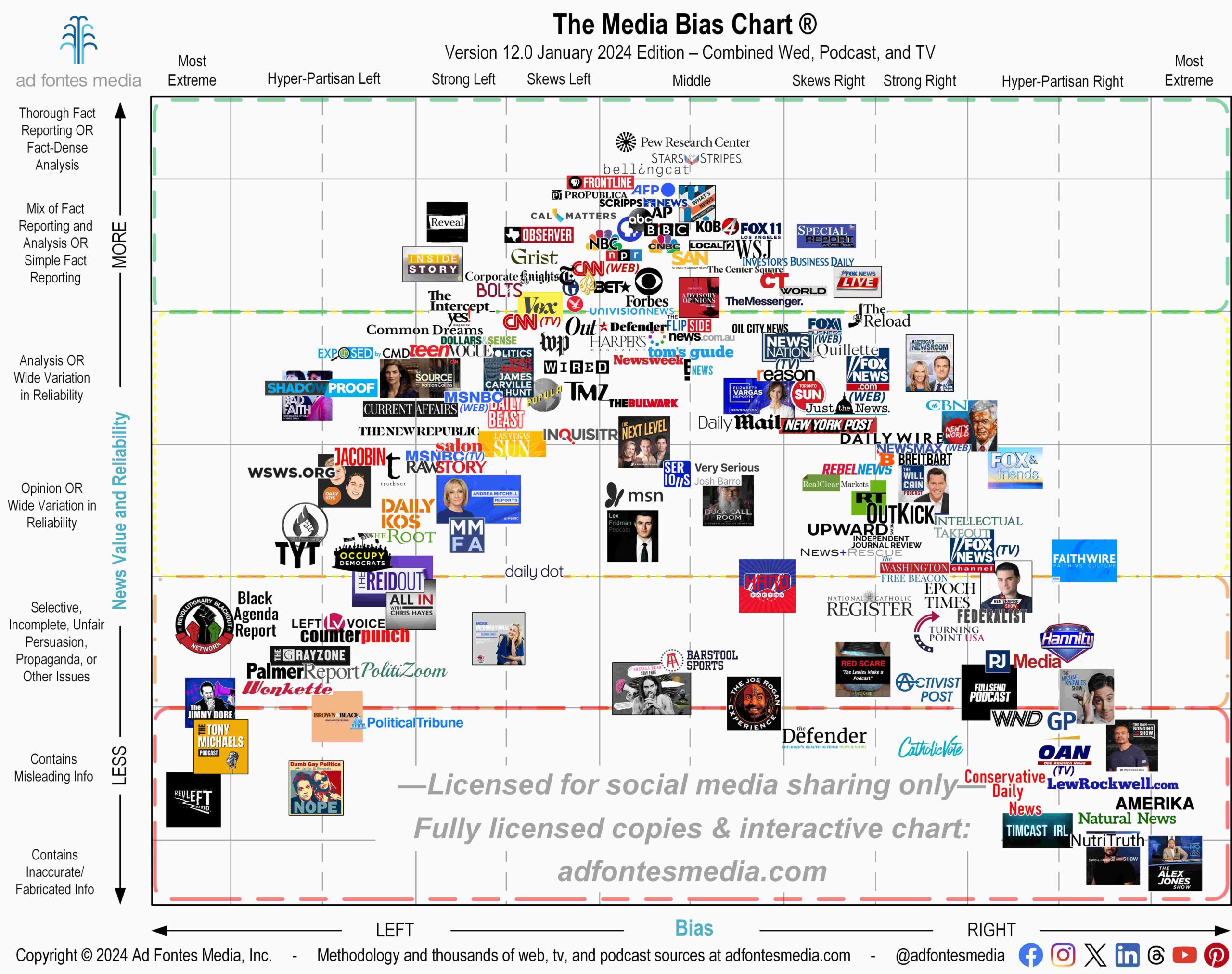Menu

News Coverage of Influencer Dietitians Being Paid to Promote Non-sugar Sweeteners
Ad Fontes Media explains bias and reliability scores for Topic of the Week
Author:
Ad Fontes Media Staff
Date:
09/29/2023
Each week, Ad Fontes Media chooses a widely covered trending news topic to share insight into how our analysts rank news coverage for the Media Bias Chart®. This week we looked at how six news sources covered the story of influencer dietitians being paid to promote non-sugar sweeteners, contradicting guidance from the World Health Organization.
Here are the articles rated by our analyst team:
- The Messenger: “Soda Industry Paid Dietitian Influencers to Promote Sugar-Alternatives: Report”
- Dexerto: “TikTokers are being paid to promote this controversial ingredient in diet soda”
- Green Matters: “Do You Trust Dietitians on Social Media? Some Are Paid by Food Industry Players”
- Gizmodo: “Your Favorite TikTok Dietitian Might Be Paid Off by Big Food”
- Paste: “We Shouldn’t Be Surprised That Influencer Dietitians Are Being Paid to Promote Processed Food”
- The Washington Post: “The food industry pays ‘influencer’ dietitians to shape your eating habits”
It’s important to note that the first five sources all based their reporting on an investigation conducted by The Washington Post, so let’s look closer at that article first.
On May 15, 2023, the World Health Organization (WHO) released the results of a study advising against using non-sugar sweeteners, stating that they are not only ineffective in replacing sugar for weight loss, but long-term use could increase the risk of “type 2 diabetes, cardiovascular diseases, and mortality in adults.” Post reporters took an extensive look at dietitian influencers on TikTok and Instagram who called this report “low-quality science” and encouraged their followers to ignore WHO’s advice.
In addition, the Post found that “companies and industry groups paid dietitians for content that encouraged viewers to eat candy and ice cream, downplayed the health risks of highly processed foods and pushed unproven supplements — messages that run counter to decades of scientific evidence about healthy eating.”
Ad Fontes Media analysts found that the report by the Post was high effort, original, investigative reporting. A team of reporters conducted multiple expert interviews and analyzed thousands of social media posts to write this story, which explained in detail the methodology used in their investigation. For this reason, the analyst team gave the Post’s story a very high rating of 57.33 for reliability and 0 for bias. Only the very best journalism is rated this highly by our analyst team, and it doesn’t happen often.
Because the other five sources examined in this week’s Topic of the Week wrote their articles based on information from the Post’s report, they also received bias scores at or near 0 and reliability scores of 38 and above. The article from The Paste was given slightly lower scores — -10 for bias and 36 for reliability — because it included analysis and the author’s opinion about why the influencers may have chosen to accept money from the food industry (“Money talks, especially in a rapidly declining economic climate …”)
This Topic of the Week exercise provides an important reminder that we should always be skeptical of the content we read, hear and see on social media platforms such as TikTok and Instagram. And since young people today spend so much time on these social media platforms, it’s vital to teach them how to be vigilant consumers of information!
Ad Fontes Media has created a package of media literacy content to help with this mission. Download our media literacy lessons today or explore our educational products. For a closer look at our offerings, reach out to us at education@adfontesmedia.com and request a free demonstration.
Want to know more about this topic or other Starter or Advanced Topics of the Week? Check out our website, and come back next week for another examination of the news.
And if you want to stay informed on all of our amazing work, join our free mailing list!

